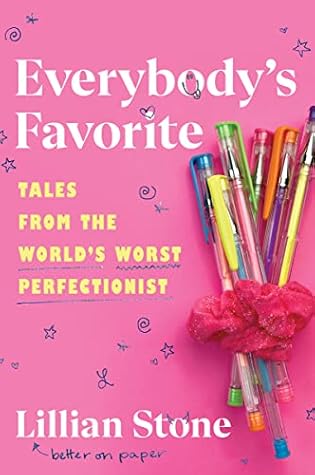More on this book
Community
Kindle Notes & Highlights
Read between
December 16 - December 19, 2023
To be a woman is to withstand a midwestern hailstorm of criticism. Strangers line up to nitpick everything from the timbre of your voice to the length of your toes.
To bend to the ruthless expectations of others is to shift, chameleonic, between identities until nothing particularly interesting remains. You become everybody and nobody all at once. It’s like that tired old line: “Who am I? I’m whoever you want me to be, baby.”
Every girl who grew up sandblasting her face with St. Ives Apricot Scrub also battles a little voice in her head—a Madison voice—constantly listing the ways she could improve.
I, like everyone else, grew up flooded with messages that paint smallness as goodness. The messages started early, transmitted by willowy Disney princesses and literary heroines like Little House on the Prairie’s Ma Wilder.
Meanwhile, the older women in my life welcomed me into the shadowy realm of three-day celery cleanses and fluorescent-lit Weight Watchers meetings. It wasn’t anything they said; unlike some of my peers’ WASPy moms, mine never urged me to join her in diet purgatory. It was more like a rite of passage, a silent salute as I slipped into the Splenda-scented waters of body-conscious adolescence. I’d mention calories in passing and watch my female relatives exhale with a combination of relief and resignation. Looking back, I picture them as weary souls swirling about in the River Styx. “Greetings,”
...more
I’ve realized that the life I want doesn’t allow for shrinking myself indefinitely. I want a life in which I may, at some point, step on someone’s toes. I want to surround myself with people who cherish my perfectly average stature. I want to reject the idea of bowing and scraping and scrimping and shrinking to gain favor. I want to spread my arms wide and occupy the sunniest part of the sidewalk and maybe even loom a little. There’s plenty of space to go around.
When unyielding chillness is the baseline, garbage treatment always follows. This is a problem for those of us who’ve learned to define our self-worth by our desirability, an approach that makes standing up for oneself impossible. If, for some reason, you find yourself feeling upset about the garbage treatment you’ve endured, it’s probably on you.
I had no clue who I was. I had spent too much time contorting myself to please others. I was too preoccupied with being chosen; I had disregarded my own right to choose.
It’s difficult to proclaim that you are worthy of love, zero chiseling required. It’s terrifying to be yourself in relationships—but it’s more terrifying to think about a future that involves wedging your personality behind the door in a trench coat, Babadook-style, only coming out under the cover of darkness for fear of scaring someone off. Relationships take compromise, but any relationship that requires chiseling isn’t worth the cost of admission.
The dogs made me laugh, which helped me laugh at myself. They made me get up and take a walk when I had been stewing in self-loathing for five hours. They were a testament to the fact that it’s okay to lie around all day and not make anything. When you’re a dog, you’re a cherished member of the family whether or not you can interpret a Google Sheet. That healed me a little.
In my mind, people-pleasing was the only way to feel safe, to quiet my fears that I was born unworthy. It was only by completing a never-ending conveyer belt of duties that I’d somehow earn my place in the world.
People-pleasing isn’t goodness—it’s the performance of goodness, which demands that others bear witness and congratulate me for being so selfless.
I could’ve engaged in the barest amount of self-reflection and realized that I am in no way uniquely tasked with managing the needs of everyone in my immediate vicinity. That level of self-reflection felt a bit out of reach—but I could feel a chip in my cheery exterior, threatening to crack me wide open like a pebble on a windshield.
slotting ourselves into little tubes—astrological signs, personality quiz results, social and professional labels, even fandoms—is a grave oversimplification. Lingering within our tidy tubes allows us to ignore those less tidy aspects of our personalities. We reject the idea of containing multitudes because containing multitudes is exhausting—especially for perfectionists like me, who feel pressure to perform each multitude perfectly. It’s uncomfortable to sit with yourself as a nuanced thing: a fuzzy cluster of good and bad and confusing traits all stitched together in one lopsided being.
...more


